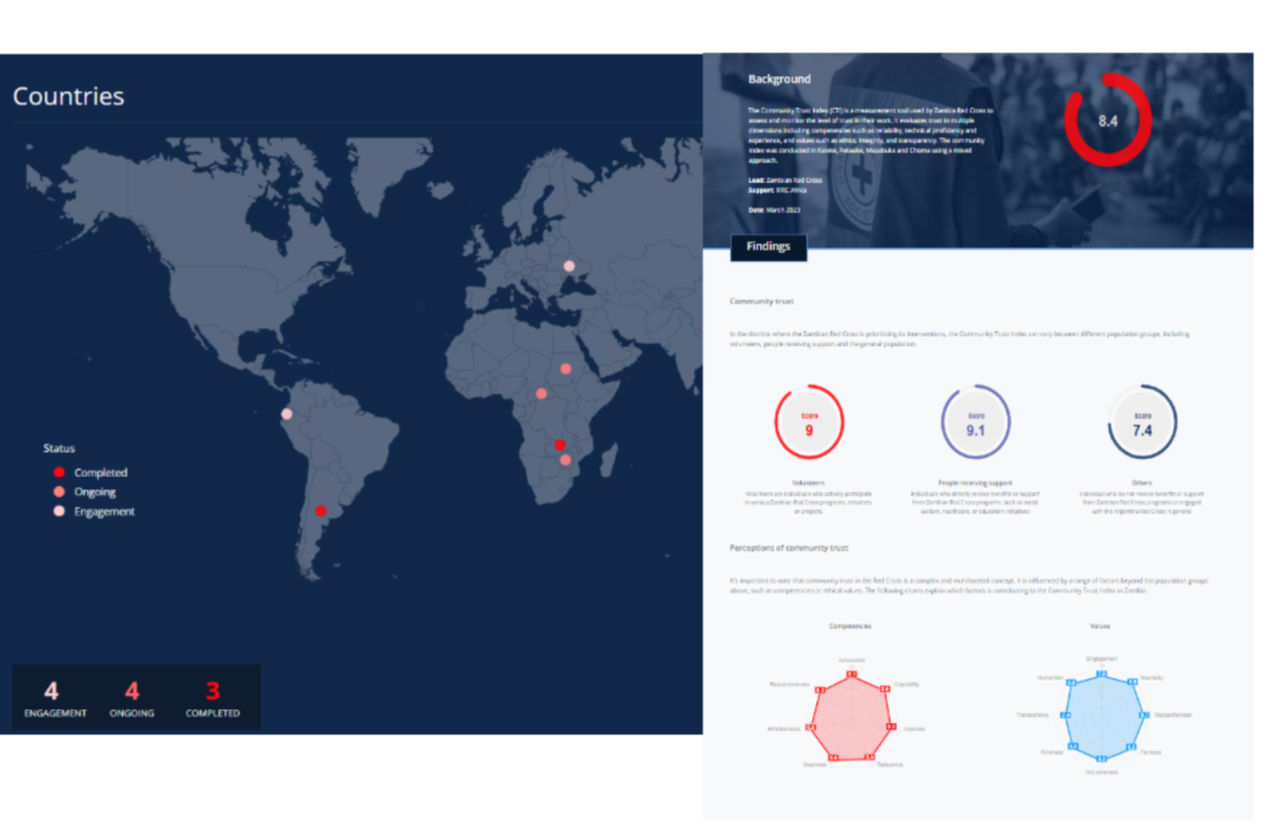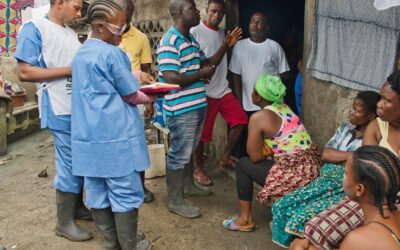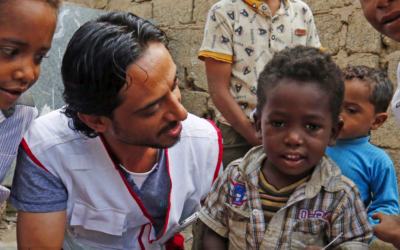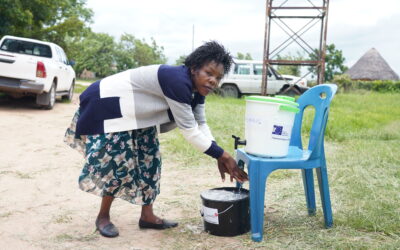Measuring and fostering community trust in humanitarian action
Community trust is complex and requires an understanding of the factors that influence it, including social, economic, cultural and environmental aspects. Without a tool to measure trust, it is difficult for humanitarian actors to take action and develop strategies to rebuild and maintain trust. Community trust is earned, not given. Understanding community trust is essential to tailor interventions, prevent conflict, and ensure effectiveness of humanitarian action.
Background and objectives
The International Federation of Red Cross and Red Crescent Societies (IFRC) Community Engagement and Accountability (CEA) Unit is establishing a Community Trust Index to help measure and foster community trust in humanitarian action.
The Index is based on a standardized questionnaire that assess community trust in competencies and values dimensions and has been recently piloted in the Red Cross and Red Crescent context in Argentina, Zambia, and the Philippines, with other countries preparing to pilot it.
The objectives of the Community Trust Index include:
- Measuring and tracking trust levels in humanitarian organizations and services and exploring barriers and enablers of community trust, using scientifically tested quantitative and qualitative approaches.
- Developing evidence-based policy and programmatic recommendations, plans, and actions to increase community trust and enhance impact of programs and operations.
- Addressing the social, political, economic, cultural, and environmental factors of trust and advocating towards increased compliance, better governance, and accountability to communities.
In its future vision the Index will also assess barriers and enablers to community trust in humanitarian action more broadly using a mixed method approach, and will focus on specific thematic issues such as climate change, migration, or public health services.
Pilot phase and webinars
Last month, the CEA unit conducted two webinars to share the findings and lessons learned from the pilot phase of the Community Trust Index and convene a joint discussion to contribute for the future vision of the Community Trust Index as a tool to build trust and foster localization and effectiveness of humanitarian action.
Here are the replays of the webinars
- Webinar – Community Trust Index: focusing on the Philippines and Zambia
- Webinar – Community Trust Index: focusing on Argentina and Nigeria (climate change)
For more confirmation, please contact Alexandra Sicotte-Levesque Alexandra alexandra.sicottelevesque@ifrc.org | Gefra Fulane gefra.fulane@ifrc.org | Vincent Turmine vincent.turmine@ifrc.org





